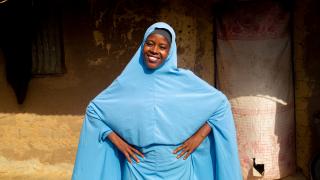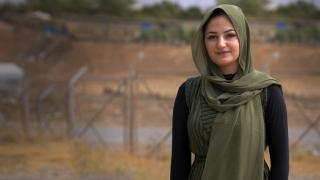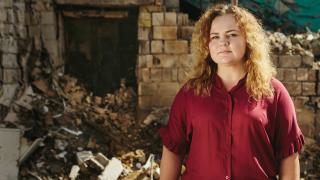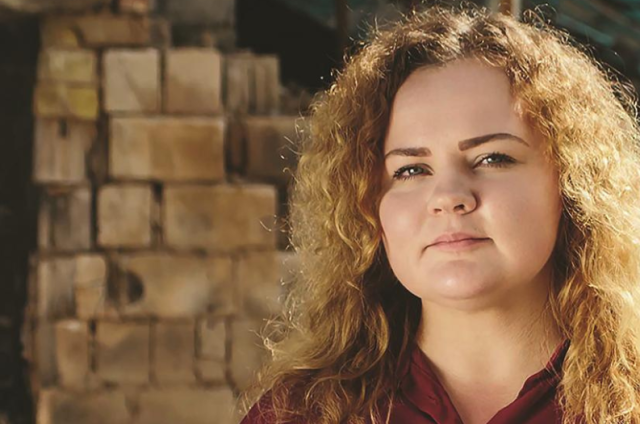Marie Jeanne's Story
FROM FEAR TO EMPOWERMENT: HOW MARIE JEANNE IS SPEAKING UP FOR WOMEN IN THE DRC
The involvement of women in decision-making processes is essential for a balanced and equitable society. However, men are in control of the processes in Marie Jeanne’s community
Marie Jeanne tells us that women are not given the opportunity to share their ideas and concerns during community gatherings. She stood up against this and other injustices. #SheDares to speak up on behalf of all the women in her community.
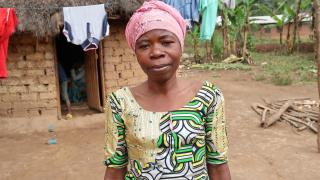
I am Marie Jeanne
In a small village in Bukavu, South Kivu, I'm a 47-year-old mother of six. I am also the guardian to a boy left behind after his father was killed during the rebel group's invasion of Goma in 2013.
I am a farmer, but the poor living conditions and recurrent armed conflicts in the Eastern DRC make it difficult to care for my children. The little proceeds I get from farming cater to 10 percent of my household needs. This is the case for many women-led households in my village. After losing men to the war, women are left to take care of orphans and households.
With increasing tension and insecurity, it became harder for me to go to the farm, and my husband couldn't go to the mining site in search of opportunities. In 2014, I took a risk and went to a nearby village called Luhara to enroll in Women for Women International's Stronger Women, Stronger Nations programme.
My motivation to join was sparked by women in Luhara whose lives had drastically changed after joining the programme. I kept wondering how they managed to set up income-generating activities in a short time.
Luckily, in 2016, Women for Women International launched the programme in my village, and I was among the first women to be registered. I joined a group of 25 women to form our class. Together, we learned practical skills such as beauty, poultry keeping and brick-making. We learned how to trade and set up businesses. Along the way, we also learned about our rights as women, our right to own land and inherit property, and how to prevent violence and domestic abuse.
The training gave us a safe space to share our experiences and speak up on issues affecting us in our communities and homes.
After a few months, I became confident and could speak up in class and among my peers.
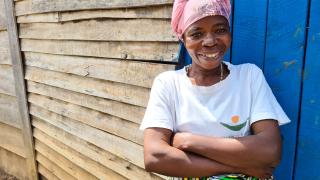
After graduating, I overcame fear, and my trainers tapped into that strength and enrolled me in the Change Agent programme, a grassroots advocacy and leadership training for women who demonstrate motivation and leadership in their community. We identified changes we wanted to see and created action plans that outlined how we wanted to use our voices and experiences to influence our communities.
During the Change Agent programme, we were encouraged to get involved in public life, train, support each other and demand our rights. The modules on how to carry out advocacy actions helped me dispel the fear and shatter the myths that have, for several decades, pushed Congolese women to remain silent when men speak.
Today, I can speak out and express women's ideas without any fear.
Due to many years of conflict in the Democratic Republic of the Congo, retrogressive traditional social orders have been deeply rooted in our society. I realised that women could not speak or share their concerns during public assemblies in my village. All decision-making processes are still concentrated in the hands of men alone. I took a stand and decided to go against the norm.
I am representing and speaking up on behalf of women in the assemblies. I am making the voices of women heard in my village.
Some of the issues I am speaking up about with the local authority in my village are women's inheritance, girls' education, women's economic power, sexual violence against women and girls, and women's ability to speak out and express their ideas. The local authority has picked up on and addressed some of the issues. My village chief does not hesitate to contact me after my position. He even named me 'Nyumba Kumi' since I manage and represent ten households.
As of now, I have assisted three women in my village to get back their inheritance after they were unlawfully denied their right to inherit since they are women. My efforts are not just in the changes I instigated but in the courage I sparked in the women in my village.
I am hopeful that one day, my fearless voice will shatter all the barriers and bring a new era of equality to my village.
Meet other women who dare
Dada
subtitle:
Dada was forced to flee her home when Boko Haram threatened to kill her husband. Now she is a successful businesswoman and a leader in her community.
Amina
subtitle:
In Afghanistan, Amina* dares to stand up for women’s rights. Women have been virtually erased from public life over the past two years: banned from parks, gyms, restaurants, most jobs and education. Opposing these restrictions is incredibly dangerous, but Amina dares to keep teaching in our training centre. She braves the constant scrutiny of government authorities and she dares to spread the word that education should be the right of every woman and girl.
*Although the story is real, for reasons of security and privacy, we're not using Amina's real name or photograph.
Iryna
subtitle:
When Russia invaded, Iryna had the courage to stay in Ukraine. In a bomb shelter, she met women who had been sexually abused by Russian soldiers. Iryna dedicated her charity, The Andreev Foundation, to supporting women survivors of sexual violence. Women who speak out about sexual assault often face shame and suspicion, especially in rural areas of Ukraine. Iryna dares to believe survivors, to speak out against sexual violence and demand justice – despite the risk that the perpetrators will return.

